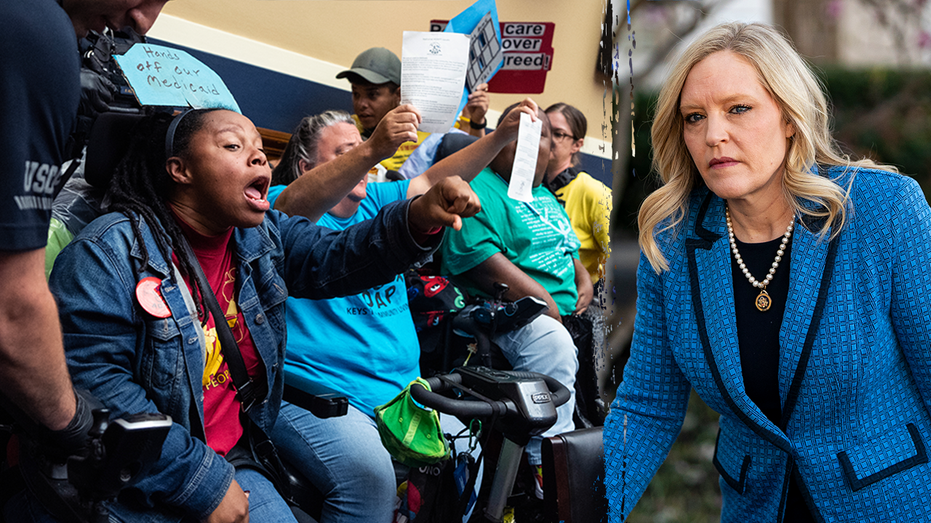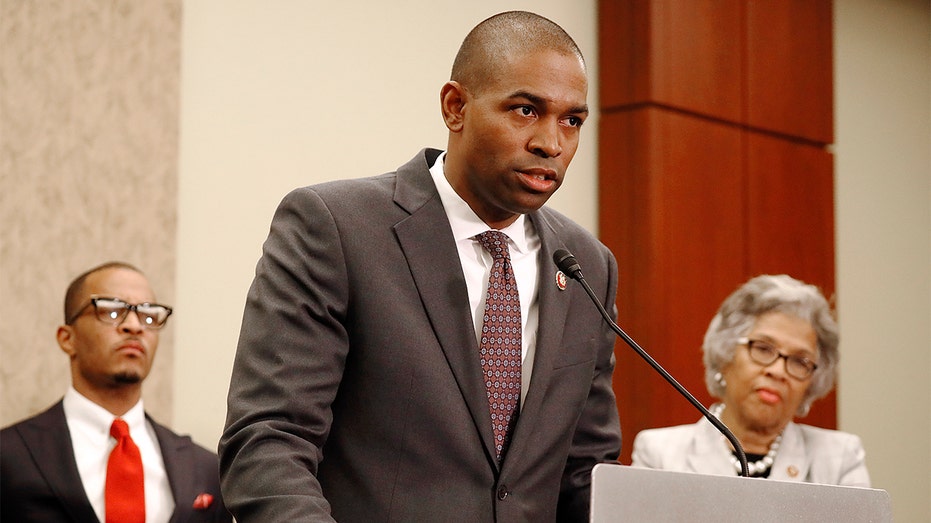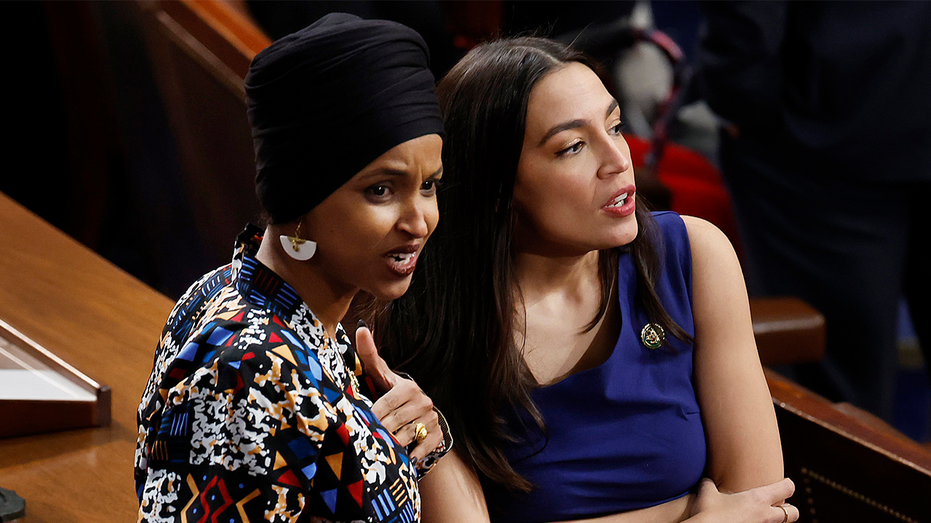GOP Slams Dem Claims on Medicaid Reform in Trump’s ‘Big, Beautiful Bill’
Republicans tout Medicaid "reform" as Democrats decry "cuts" following House approval of the One Big Beautiful Bill Act.

House Republicans are touting their success in passing the One Big Beautiful Bill Act, legislation that includes sweeping reforms to Medicaid. GOP leaders argue the measure will root out waste, fraud, and abuse, ensuring that coverage goes to Americans who need it most.
The issue has quickly become a flashpoint in Washington, with Democrats lambasting the reforms as a threat to vulnerable Americans' health care access. Since President Donald Trump's election, Democrats have warned about potential Medicaid cuts, and now, following the bill’s narrow passage in the House, they are making the projected coverage losses a cornerstone of their strategy heading into the 2026 midterm elections.
Republican lawmakers counter that these criticisms misrepresent the facts. “The One, Big Beautiful Bill puts Americans first. We're securing the border. We're protecting benefits for the most vulnerable. We are investing in American manufacturing. We're investing in our own energy production,” Rep. Erin Houchin, R-Ind., said in an interview. She accused Democrats of “focusing on this specific line of attack that 13.7 million Americans are going to lose their health care,” calling it “blatantly false.”
Independent analysis by the Congressional Budget Office (CBO) estimates that 8.6 million people will lose health insurance coverage by 2034 under the bill’s Medicaid provisions. However, Rep. Houchin contends that about 5 million of those individuals would be losing coverage due to the expiration of Affordable Care Act tax credits, a sunset provision previously set by Democrats.
Democrats, nevertheless, are seizing on the larger CBO figure. Many have already started using the estimated 13.7 million coverage losses in campaign rhetoric, highlighting what they see as a Republican-driven rollback of critical health care protections.
Rep. Houchin dismissed the CBO projections, citing concerns over alleged partisan leanings within the agency’s staff. A report from the conservative American Accountability Foundation pointed to the majority of CBO Health Analysis Division members having Democratic ties, raising questions among some Republicans about the office’s impartiality.
Republicans emphasize that the bill does not cut Medicaid for the most vulnerable populations. Instead, they say it is designed to remove ineligible recipients, such as illegal immigrants, duplicate enrollees, and able-bodied adults who are not working. The bill would impose modest work requirements for able-bodied adults in the Medicaid expansion group.
“If you have to think about the four things that we're doing in Medicaid to strengthen it, we're removing anybody that is illegal, ineligible or duplicate, and we're ensuring that able-bodied adults, on the expansion population, have a very modest work requirement,” Houchin explained. She argued that these provisions are “overwhelmingly supported by the American people,” accusing Democrats of mischaracterizing the reforms.
Republicans insist that the goal is to protect Medicaid for future generations without denying assistance to those who genuinely need it. “What we're trying to do is protect precious Medicaid dollars for those who need it most,” Houchin added. “No one in the traditional Medicaid population needs to worry.”
Democrats, for their part, maintain that any loss of coverage is unacceptable, warning that Republicans will pay a political price for the passage of the bill. “House Republicans' giant tax scam will kick millions of people off their health insurance,” Democratic Congressional Campaign Committee spokesperson Viet Shelton stated.
After weeks of negotiations, the bill passed the House by a narrow 215-214 margin, with all Democrats voting in opposition. The legislation marks a major win for Trump’s legislative agenda, advancing key promises on taxes, energy, immigration, and government spending.
However, prospects in the Senate remain uncertain. Some Senate Republicans, including Sen. Josh Hawley of Missouri, have expressed reservations, particularly about potential impacts on rural hospitals and working-class families. “I don’t want to see rural hospitals close their doors because funding got cut. I also don’t like the idea of a hidden tax on the working poor. That’s why I’m a NO on this House bill in its current form,” Hawley said.
The bill contains several hallmark elements of Trump’s platform, such as no tax on tips and overtime, and seeks to make permanent the 2017 Tax Cuts and Jobs Act. As debate shifts to the Senate, both parties are preparing for an intense messaging battle.
Democrats are already targeting Republicans who supported the Medicaid changes, arguing the vote will jeopardize their reelection prospects. “By passing the largest cut to Medicaid in history, Republicans are ripping away health care from millions of Americans,” DCCC Chair Suzan DelBene said. She predicted that the decision would cost the GOP its House majority in 2026.
Republicans, meanwhile, are readying their own counterattack, accusing Democrats of opposing major tax relief for working families. “House Democrats voted for the largest tax increase in generations while giving taxpayer-funded freebies to illegal immigrants. The NRCC will make sure voters don't forget how they betrayed working families,” National Republican Campaign Committee spokesman Mike Marinella said.
As lawmakers return home for the congressional recess, party strategists on both sides are urging members to communicate with constituents about the high stakes involved in Medicaid reform and the broader legislative package. The outcome of these efforts — both on the Senate floor and at the ballot box — may yet determine the fate of the One Big Beautiful Bill Act and the future of federal health care policy.




